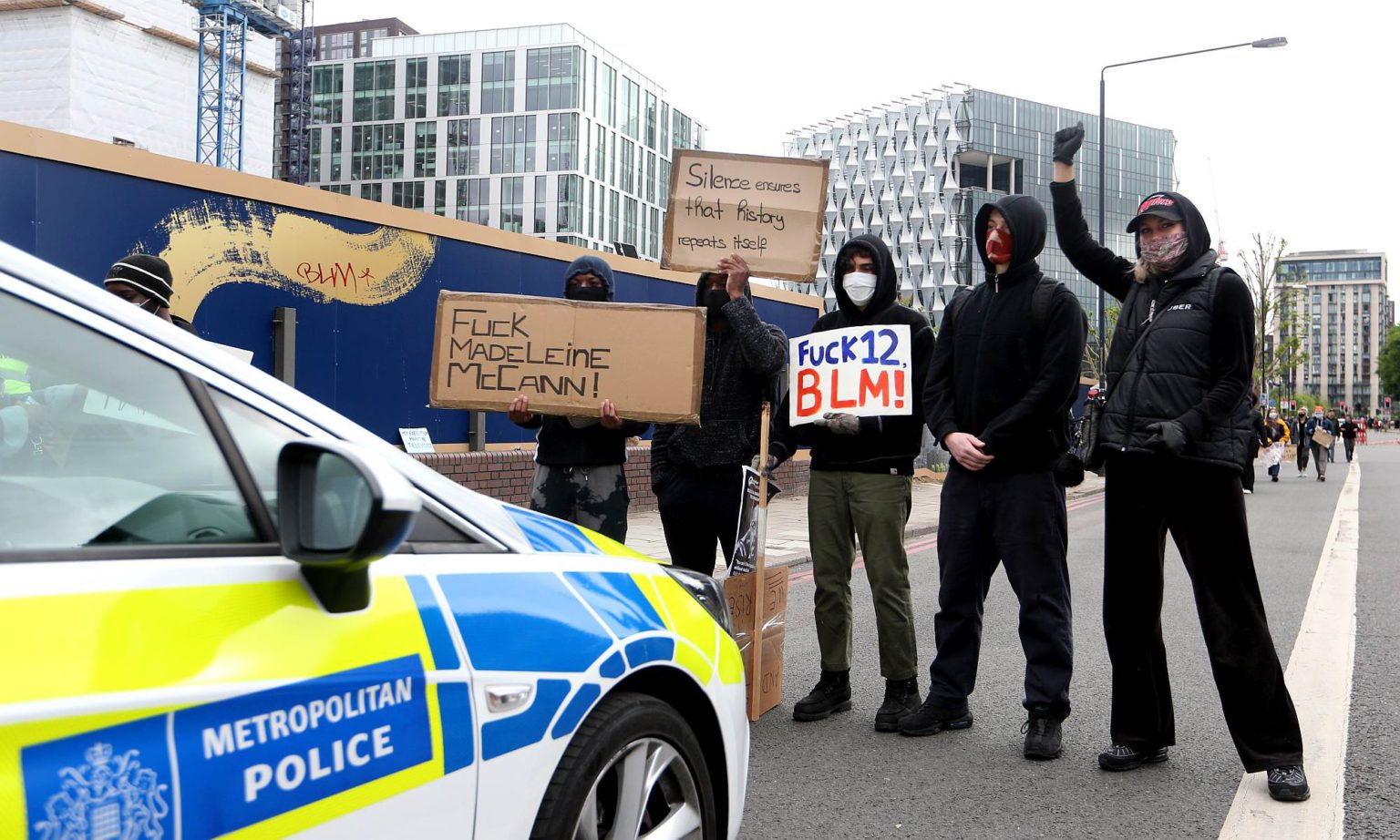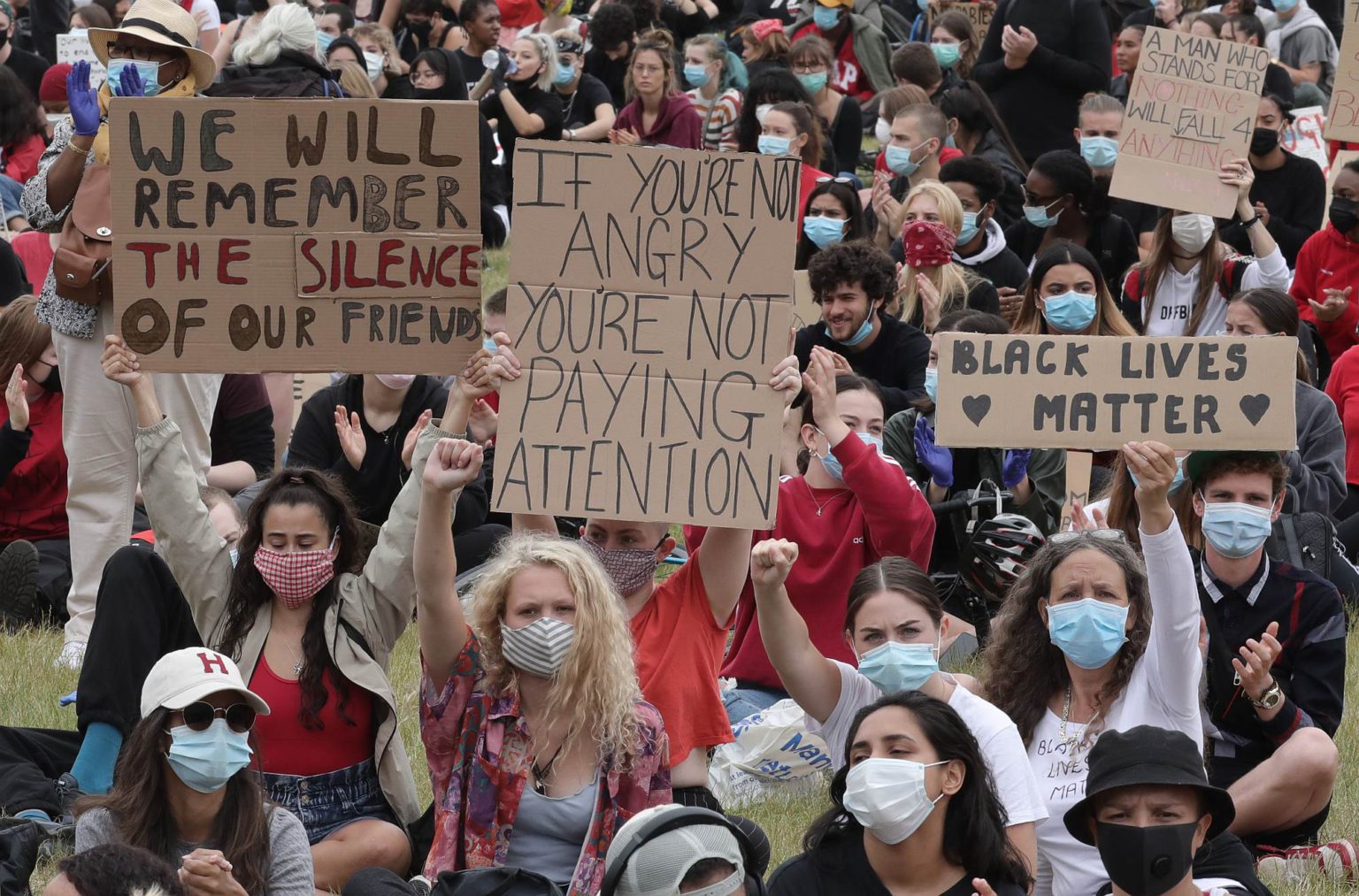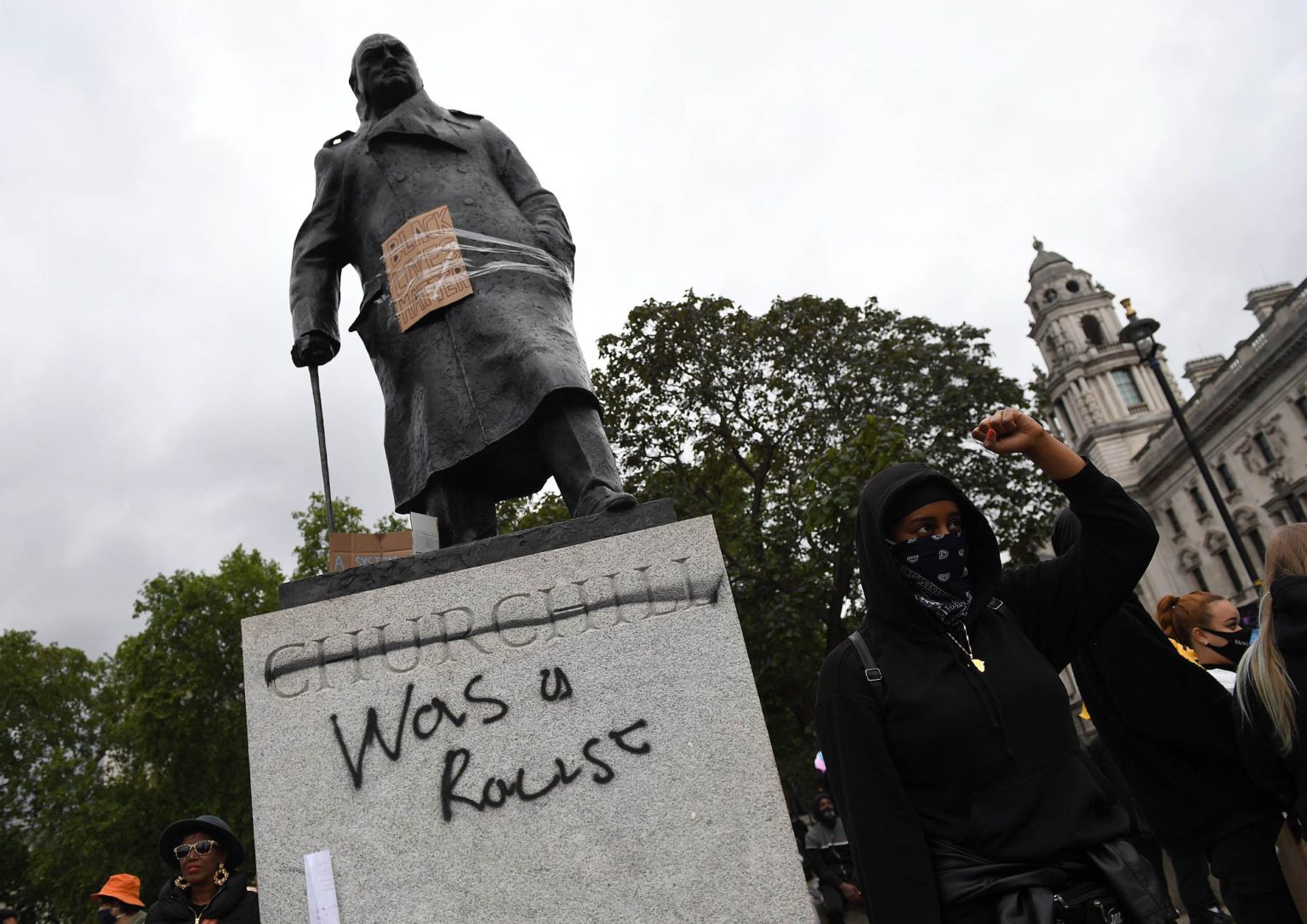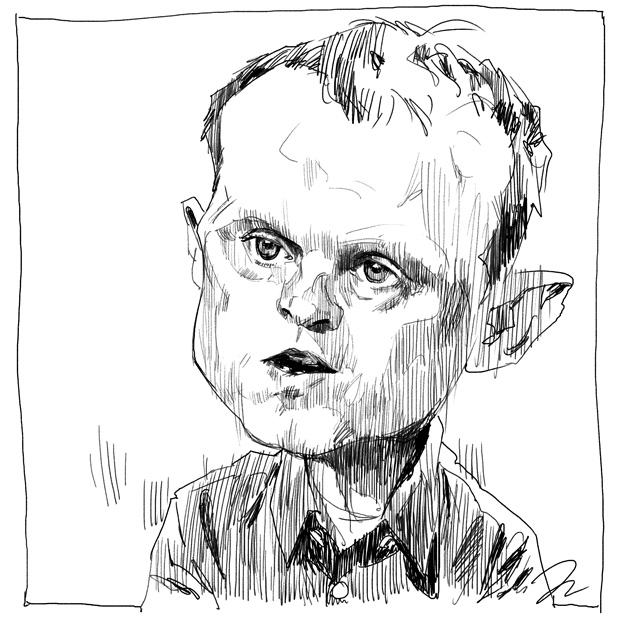
Long-read
We need to talk about Black Lives Matter
The tidal wave of woke sentiment, unleashed in the name of anti-racism, threatens the very foundations of liberal democracy.
Want to read spiked ad-free? Become a spiked supporter.
At times of heightened emotion, discussion is always difficult. It is impossible to see the footage of George Floyd’s murder at the hands of a Minneapolis police officer without feeling anger at this utter disregard for human life. The police are uniquely licensed to use force against citizens in the interests of upholding law and order, and so it is essential that we are vigilant against abuses of this power. Any instances of police brutality or racism need to be opposed with vigour, and the peaceful protesters who have done so deserve our support.
Such campaigns are inevitably undermined when they are hijacked by ideological groups with other agendas, or those who resort to violence. The ensuing confusion explains why in recent days we have seen major media outlets and politicians defending and even encouraging violent action. Some who have condemned looting, arson and physical attacks have even been accused of supporting white supremacy, a vile and disingenuous charge that is almost certainly intended to quash dissent. This has largely come about because activists, many of them white and middle-class, have taken the opportunity to exploit a worthy cause. The essential work of standing up against police brutality, as evinced by the unforgivable treatment of Floyd, is being obscured by a culture war that is freewheeling out of control.
Those of us who have urged vigilance when it comes to the rise of identity politics and the cult of Social Justice have now been fully vindicated. For years we have warned about the ways in which the culture war had the potential to infect all public and political discourse. But we were dismissed as railing against niche politics confined to campus common rooms and the dark recesses of the internet. Now the culture war has exploded on to the streets of the UK. If that sounds like a fancy way to say ‘I told you so’, then so be it.
If we are to have any chance of preserving the liberal values upon which our society depends, we need to find a way to navigate the binary thinking that comes with ideologically driven movements. The first step is to acknowledge common ground. In all my life I have never met a single person who would not agree with the proposition that ‘black lives matter’, so that seems like a good place to start. It’s been many years since racism has been in any way tolerated by polite society, one of the undeniably positive outcomes of the political-correctness campaigns of the 1980s and 1990s. A further point on which we can surely all agree is that racism exists and should be resisted wherever it occurs. This may seem obvious, but since any opposition to the cult of Social Justice is automatically taken as a denial of the fact of racism, it is worth making the point explicitly.
Those who would deny the existence of racism, or do not agree that black lives matter, or do not accept that racism is an evil that must always be confronted, are already beyond the scope of rational adult conversation. The vast majority of the population believe in our shared values of equality and fairness, although many Social Justice activists prefer to ignore this reality in favour of a fantasy Britain awash with fascists. We saw this in the way that Brexit voters were consistently smeared as xenophobic, even though such a label could only possibly apply to a tiny minority. We saw this in the myth that those who voted Leave were nostalgic for a colonial past, a virtually non-existent mindset that was assumed to be commonplace on the basis of no evidence at all. These kinds of prejudices, largely levelled against working-class people by bourgeois commentators, in turn generated the kind of resentment that almost certainly tipped the scales in favour of Brexit and ultimately led to the collapse of Labour’s ‘red wall’. These outcomes were in themselves taken as proof of Britain’s inherent racism, and so we find ourselves caught in this perpetual square dance of straw men.
All of which has been a boon for the intersectional, identity-based Social Justice movement, which is sustained on a view of society that bears little resemblance to reality. The latest protests have been infiltrated, and often stoked, by the presence of various groups who unite under the banner of ‘Antifa’. Like ‘Black Lives Matter’, these groups rely on the good nature of a public who are likely to interpret their name literally. After all, only a fascist would complain about anti-fascism. Even Mara Liasson, national political correspondent for NPR, fell for this basic rhetorical trick when she described the Normandy landing of more than 150,000 Allied troops as the ‘biggest Antifa rally in history’. Activist singer Billy Bragg posted an image of Winston Churchill captioned simply with ‘ANTIFA’. That protesters this week defaced the statue of Churchill in Parliament Square and branded him a ‘racist’ shows the incoherence of much of what is going on.

To return to our common ground: not only is fascism vanishingly rare in the UK, but you would be hard pushed to find anyone who isn’t wholeheartedly opposed to fascism. We are all anti-fascist, which makes Antifa’s claim to be resisting a popular tyrannous force seem about 80 years out of date. The difference is that most of us understand that pepper-spraying a Trump supporter, or striking a UKIP voter over the head with a bike lock, doesn’t put us in the same bracket as those who fought actual fascists at Cable Street in 1936.
As I have argued in Standpoint, our failure to instil critical thinking in our educational systems has led to many of the problems we face in today’s society. To make the case for measured and reasonable discussion of these sensitive issues is to open oneself up to entirely unfounded charges of racism. In such circumstances, most people would rather acquiesce for the sake of an easy life. We have even seen those who have raised questions about the wisdom of permitting mobs to destroy public landmarks being accused of endorsing the slave trade. ‘How you feel about that statue is how you feel about slavery’, tweeted LBC presenter James O’Brien. But the chances of finding anyone in the UK who would defend slavery are infinitesimal, and it is surely inconceivable that anyone making these allegations sincerely believes otherwise.
Yet this week we have seen a media and political class who are not interested in serious debate about the aims of the protesters, but would rather uncritically declare their fealty for fear of being mischaracterised. Corporations are likewise competing with each other to emphasise their solidarity. PG Tips and Yorkshire Tea have been quick to rebuke customers via Twitter for any signs of non-conformity, as though their values extend any further than the mass distribution of tea for financial gain. Politicians are ‘taking the knee’ for photo opportunities, and London mayor Sadiq Khan is consulting with ‘diversity experts’ to determine which historical landmarks ought to be removed. A campaign to #ShutDownAcademia and #ShutDownSTEM is gaining momentum, with academics calling for more inclusive ‘new ways of knowing’ and asserting that higher education, like all major cultural institutions, is ‘systemically racist’.
Meanwhile, major television streaming services are frantically deleting content that might cause offence. Little Britain has been removed from BBC iPlayer for its comedic ‘blackface’. Netflix has followed suit — in addition to Little Britain, the service has taken down The Mighty Boosh and The League of Gentlemen. And Gone with the Wind has lived up to its name, now excised from HBO Max with the possibility that it will return at a later date with a ‘discussion of its historical context’. Such decisions are almost certainly well intentioned, but they are based on the patronising belief that viewers are incapable of understanding how ethical standards change over time.
More common ground is available here should we wish to seize it. The Antebellum South that we see depicted in Gone with the Wind was indubitably racist. History is replete with examples of systemic racism that would never be condoned today, so we should always take seriously any possibility that systemic racism still lurks in our society. But when activists make the claim that UK universities in 2020 are hotbeds of white supremacy, we are right to ask for clear and irrefutable proof. These are among the most tolerant places to live and work, and so in this case the proposition of systemic racism needs to be discussed and investigated, not assumed. For one thing, the data makes it clear that racist incidents on UK campuses are rare; that is not to say that the research might not be flawed, but unless we can have a sensible discussion, few will be persuaded to change their minds.

We are fortunate to live in a country in which it is illegal to discriminate on the basis of race. Even the suggestion that anyone has done so is enough to ruin his or her livelihood and reputation. As liberals, we should be tackling instances of racism as and when they occur, not making faith-based claims of nebulous ‘power structures’ and ascribing collective guilt on the basis of skin colour. In the late 1960s, Hannah Arendt criticised the ‘rather fashionable’ tendency among white liberals to accept collective guilt, which she described as ‘the best possible safeguard against the discovery of culprits’. In this, she was articulating something that we all instinctively know. ‘Where all are guilty, no one is’, she wrote. ‘The real rift between black and white is not healed by being translated into an even less reconcilable conflict between collective innocence and collective guilt.’ Yet this is now precisely the kind of conflict that is being fostered. Any claim of systemic racism should be the beginning of a conversation, not the end.
Similarly, we must feel able to discuss movements such as Black Lives Matter critically, and not simply assume that its objectives are straightforwardly encapsulated by its name. How many people know, for instance, that part of the Black Lives Matter manifesto is a commitment to ‘dismantle cisgender privilege’ and ‘disrupt the Western-prescribed nuclear family structure requirement by supporting each other as extended families and “villages” that collectively care for one another’? The movement, in other words, is not solely about standing up to racism, a goal that anyone with an intact moral compass would share. Look carefully at the messages of the graffiti and the placards on many of these protests. Yes, we all agree that black lives matter, but can we really say the same for ‘all cops are bastards’ or ‘fuck Madeleine McCann’?
That we have reached the point at which the majority of people are genuinely afraid of having difficult conversations is a tragedy for everyone. We are right to be concerned when mobs are able to decide which historical monuments should be destroyed through force of intimidation. We are right to object to groundless accusations of racism as a means to stifle discussion. We are right to be appalled when journalists are hounded out of their jobs for wrongthink, or when dictionary definitions are changed due to political pressure, rather than the natural evolution of language. We are right to be nervous about race-based collective guilt, and quasi-religious mass displays of supplication and conformity. We are right to challenge the wisdom of removing offensive content from entertainment services or libraries. We are right to promote compassion and empathy in the face of those who would sooner dehumanise and bully anyone who questions their ideological worldview. We are right to decry violence when so many are seemingly oblivious to the sanctity of human life. We are right to be worried when racial division is being sown in the name of anti-racism. We are right to be alert to the signs of a creeping form of authoritarianism that conceals itself beneath a veneer of Social Justice. Above all, we are right to risk standing up for the values of a liberal democracy in the maelstrom of a seemingly endless culture war.
Andrew Doyle is a stand-up comedian and spiked columnist.
Pictures by: Getty Images.
Who funds spiked? You do
We are funded by you. And in this era of cancel culture and advertiser boycotts, we rely on your donations more than ever. Seventy per cent of our revenue comes from our readers’ donations – the vast majority giving just £5 per month. If you make a regular donation – of £5 a month or £50 a year – you can become a and enjoy:
–Ad-free reading
–Exclusive events
–Access to our comments section
It’s the best way to keep spiked going – and growing. Thank you!








Comments
Want to join the conversation?
Only spiked supporters and patrons, who donate regularly to us, can comment on our articles.